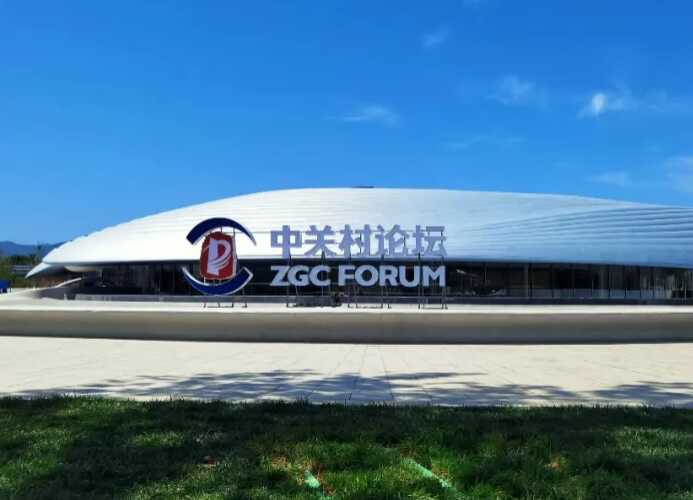"Science Without Borders, Benefiting All Mankind" - 2024 Zhongguancun Forum Hosts International Forum on Science and Diplomacy
"Science Without Borders, Benefiting All Mankind" was the call issued by the Chinese government in its 2023 release of the "International Science and Technology Cooperation Initiative" (ISTCI). On April 29th, at the 2024 Zhongguancun Forum's annual event - the International Forum on Science and Diplomacy (IFSD), Chen Jiachang, Vice Minister of the Ministry of Science and Technology, stated that since the launch of the ISTCI, China has actively contributed to fostering a closer international network for science and technology cooperation.

Under the theme of "Promoting Open Innovation and Mutual Cooperation," the forum saw experts engaging in discussions and exchanges on topics such as strengthening global scientific and technological innovation collaboration, building a global innovation network, and exploring new models of global scientific and technological innovation cooperation for mutual benefit and win-win outcomes.
In his opening speech at the forum, Chen Jiachang emphasized that amidst the deepening of the new round of scientific and technological revolution and industrial change, China firmly adheres to an open strategy of mutual benefit and win-win cooperation. China is willing to collaborate with countries worldwide to promote scientific and technological innovation, advancing science and technology for the betterment of people across the globe. To deepen international scientific and technological exchanges and cooperation, Chen Jiachang proposed four suggestions: expanding openness and cooperation to jointly build a better home for humanity; promoting win-win development to collectively address major global scientific and technological challenges; strengthening coordinated governance to effectively promote the global development of emerging technologies; and deepening cultural exchanges to continuously enhance mutual learning among global youth scholars.
Beijing is actively constructing an international science and technology innovation center. Cui Shuqiang, Vice Chairman of the Beijing Municipal Committee of the Chinese People's Political Consultative Conference (CPPCC), stated that Beijing will continue to uphold the principles of "openness, inclusiveness, mutual benefit, and sharing." Beijing will promote the establishment of an international cooperation pattern in science and technology innovation, improve the system and mechanism for opening up the field of science and technology to the outside world, and contribute more of China's solutions and Beijing's practices to addressing global challenges and promoting sustainable development.
During the forum, Sun Key, Deputy Director of the Department of International Cooperation at the Ministry of Science and Technology, expressed China's willingness to continue working with all parties to promote the implementation of the International Science and Technology Cooperation Initiative. Through high-level, high-quality exchanges and cooperation in science, technology, and innovation, China aims to foster innovative growth momentum and jointly create an open innovation ecosystem with countries worldwide.
International cooperation plays a crucial role in advancing specific technological fields. Sun Yize, Academician of the Chinese Academy of Engineering and Director of the Textile Science and Technology Innovation Center at Donghua University, highlighted the historical evolution of textile technology amidst international exchanges, emphasizing the indispensability of international exchanges and cooperation in scientific and technological innovation.
"We should follow international frontier dynamics, align with national strategic needs, tackle industry technical bottlenecks, persist in innovation and R&D, expand and deepen international cooperation networks, participate deeply in international big science programs and projects, and accelerate the transformation of scientific and technological achievements into real-world applications to meet the major strategic needs and important livelihood needs of the country," Sun Yize remarked.
Speakers from different countries shared their experiences of international cooperation in their respective fields during the forum. Orakanok Panlaksa, Head of International Affairs, Scientific Research and Innovation Organization (SRIO), Thailand, shared cooperation experiences from ASEAN to Asia-Pacific to the United Nations. John Ruane, former President and Chairman Emeritus of the Staples Foundation, emphasized the Foundation's commitment to the Chinese market and its efforts in building an international collaborative innovation platform and facilitating international technology transfer and talent cultivation.
One of the themes of this forum focused on harnessing the role of young scientists in promoting science and technology diplomacy and advancing science and technology innovation from a global perspective. During the Young Scientists Innovation Dialogue, experts and scholars from various countries engaged in round-table discussions.
The first round-table dialogue, titled "Promoting Science for Good, Contributing to Sustainable Development," was moderated by Jin Xiaoming, Director of the Expert Committee on Science and Technology Diplomacy of CIAST. Participants exchanged views on how international scientific and technological cooperation can promote human well-being in their respective fields of specialization.
The second round-table dialogue, titled "Embracing the Spirit of Open Science, Building a Sound Ecology for International Science and Technology Cooperation," was moderated by Mu Rongping, Researcher at the Institute of Science and Technology Strategy Consultation, Chinese Academy of Sciences, and Chairman of the China Science and Technology Association for Science and Technology Policy Research. Scholars provided suggestions from their respective perspectives on strengthening global innovation governance and creating a more open ecosystem for international science and technology cooperation.
As one of the parallel forums of the 2024 Zhongguancun Forum, the "International Forum on Science and Diplomacy" was organized by the Ministry of Science and Technology, China Association for International Science and Technology Cooperation, Beijing Municipal Commission of Science and Technology, and Zhongguancun Science and Technology Park Administrative Committee. More than 200 representatives from relevant departments of the Ministry of Foreign Affairs, the Ministry of Housing and Urban-Rural Development, the Ministry of Transportation, the Ministry of Agriculture and Rural Affairs, the State-owned Assets Supervision and Administration Commission of the State Council, the Chinese Academy of Sciences, the National Natural Science Foundation of China, local science and technology administration departments, foreign embassies and consulates, and relevant domestic universities, research institutes, and enterprises attended the conference.
(This article is translated from "Beijing International Science and Technology Innovation Center" WeChat account, with information from Science and Technology Daily.)